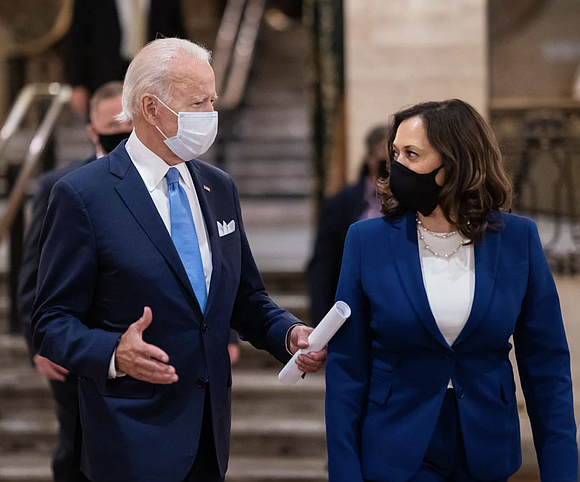Biden-Harris Administration Takes Steps to Advance Diversity and Opportunity in Higher Education: Justice and Education Departments Release Resources to Advance Diversity and Opportunity in Higher Edu
Resources Aimed to Assist Colleges and Universities in Response to the U.S. Supreme Court’s Decision on the Use of Race in Higher Education Admissions
Style Magazine Newswire | 8/14/2023, 3:56 p.m.
Today, following the Biden-Harris Administration’s commitment to advance diversity and opportunity in higher education, the U.S. Department of Education’s (ED) Office for Civil Rights and the U.S. Department of Justice’s Civil Rights Division are jointly releasing two resources to help colleges and universities understand the U.S. Supreme Court’s decision in Students for Fair Admissions, Inc. v. President and Fellows of Harvard College and Students for Fair Admissions, Inc. v. University of North Carolina et al. (collectively “SFFA”). These resources will help colleges and universities as they work to lawfully pursue efforts to achieve a student body that is diverse across a range of factors, including race and ethnicity.
“For higher education to be an engine for equal opportunity, upward mobility, and global competitiveness, we need campus communities that reflect the beautiful diversity of our country,” said U.S. Secretary of Education Miguel Cardona. “The resources issued by the Biden-Harris Administration today will provide college leaders with much-needed clarity on how they can lawfully promote and support diversity, and expand access to educational opportunity for all following the Supreme Court’s disappointing ruling on affirmative action. This is only the first step and our Administration will continue to work to ensure we prepare students of all backgrounds and income levels to lead our multiracial democracy together.”
“Ensuring access to higher education for students from different backgrounds is one of the most powerful tools we have to prepare graduates to lead an increasingly diverse nation and make real our country’s promise of opportunity for all,” said Attorney General Merrick B. Garland. “These resources provide universities with the information they need to determine what lawful tools remain available to them to promote diversity in higher education. The Justice Department remains committed to working with our partners across government to advance educational opportunity for all Americans, regardless of their background.”
On June 29, 2023, the Supreme Court held in SFFA that the consideration of race in the admissions practices of the University of North Carolina and Harvard College violated the Equal Protection Clause of the Fourteenth Amendment and Title VI of the Civil Rights Act of 1964, a law that prohibits discrimination based on race, color, or national origin in programs or activities receiving federal financial assistance, including those conducted by colleges and universities.
Following the Court’s decision in SFFA, President Biden and Vice President Harris called on colleges, universities, and other stakeholders to seize the opportunity to expand access to educational opportunity for all students, and to build diverse student bodies, including by recognizing and valuing students who have overcome adversity. The Administration remains committed to advancing access to education for all Americans and to promoting diversity in higher education consistent with the law. The Administration has taken swift action to support our Nation's colleges and universities so they can continue building pathways to upward mobility and preparing students from all backgrounds to thrive in our workforce.
In light of the SFFA decision, the Departments today issued a Dear Colleague Letter and a Questions and Answers resource to help colleges and universities understand the Court’s decision as they continue to pursue campuses that are racially diverse and that include students with a range of viewpoints, talents, backgrounds, and experiences.
“Even after the Court’s decision sharply limited a tool that colleges and universities with selective admissions practices have used to create vibrant, diverse campus communities, colleges and universities may still lawfully work to admit, support, retain, and graduate racially diverse student bodies,” said Assistant Secretary for Civil Rights at ED Catherine E. Lhamon. “Today’s resources explain practices that remain legally viable and confirms the Federal government’s robust civil rights protections in schools.”
“Educational institutions must ensure that their admissions practices do not create barriers for students based on any protected characteristics, including race. We remain firmly committed to equitable educational opportunities for all students, and ensuring that students of color are not denied opportunities to participate in the robust exchange of ideas and experiences that are the keystone of college and university life,” said Assistant Attorney General for Civil Rights Kristen Clarke. “How an applicant’s racial identity – as well as other aspects of their social identity – impact their development, goals, or educational interests remain important considerations in university admissions.”
The Departments’ Questions & Answers resource distills the Court’s core holding and offers examples of steps colleges and universities can lawfully take to achieve a student body that is diverse across a range of factors, including race and ethnicity, such as: targeted outreach, recruitment, and pathway programs; evaluation of admission policies; and retention strategies and programs.
Last month, following the decision, ED hosted the National Summit on Equal Opportunity in Higher Education that brought together senior Biden-Harris Administration officials, student leaders, college and university administrators, and other stakeholders to discuss innovative strategies that enable colleges and universities to promote educational opportunity. In September, ED will produce a report elevating promising practices to build inclusive, diverse student bodies, including how colleges can give serious consideration to measures of adversity when selecting among qualified applicants. This includes accounting for the financial means of a student or their family; where a student grew up and went to high school; and personal experiences of hardship or discrimination, including racial discrimination, in their admissions process.
More information on the work the Biden-Harris Administration is doing to continue building success for all students to thrive can be found here.









